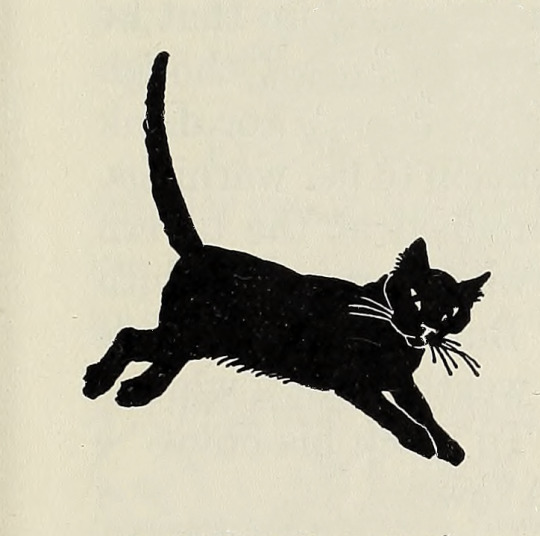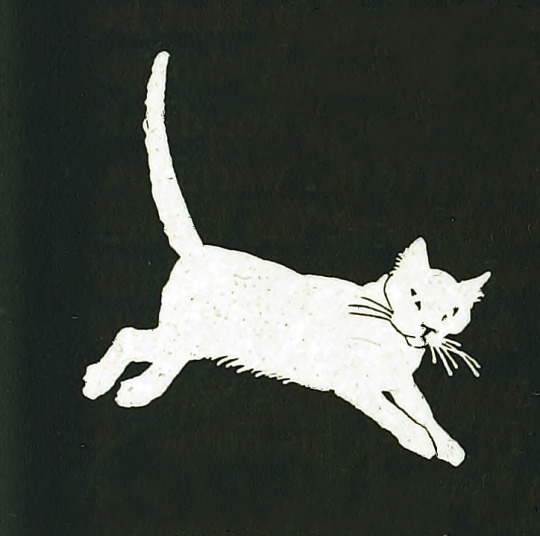#superstitions
Text
(common superstitions from the perspective of a USAmerican- would love to hear superstitions from other regions and cultures!)
(follow the most often when the situation arises, or believe in the strongest)
#(i doubt any of these actually *originate* in the US i just mean what we have commonly culturally adopted)#not counting blessing a sneeze cause that would for sure win i think#poll#polls#tumblr poll#tumblr polls#superstitions#psychology#sociology
13K notes
·
View notes
Text
9K notes
·
View notes
Photo

A Manual of Etiquette with Hints on Politeness and Good Breeding, 1868
#1868#1860s#victorian era#superstitions#etiquette#advice#manners#superstition#victorian#1860's#dinner#dinner party#high society#upper class#number 13#thirteen#the muses#the graces#the three graces#the nine muses
2K notes
·
View notes
Text


Cats. Junior English Activities - Book Two. 1938.
Internet Archive
#black cat#white cat#children's book illustration#halloween#superstitions#textbook illustration#1938#1930s
3K notes
·
View notes
Quote
Weakness, fear, melancholy, together with ignorance, are the true sources of superstition.
David Hume, Essays, Moral, Political, and Literary
#philosophy#quotes#David Hume#Essays Moral Political and Literary#fear#ignorance#superstitions#beliefs
393 notes
·
View notes
Text
Fantasy Worldbuilding Questions (Clothing and Fashion)
Clothing and Fashion Worldbuilding Questions:
What is considered typical or everyday dress for each region?
What values or status does society confer to clothing (or is it entirely functional, or even non-existent)?
Who is permitted to wear what? Are there taboos, superstitions, or laws governing dress? Why?
Who has access to clothing? Which fabrics are cheaper and which more expensive (and why)?
Where are fabrics and other materials used in clothing sourced, and is their production ethical or problematic in some way?
Where are specific dress codes or uniforms enforced, and what are they?
When do styles or what people typically wear change, are there seasonal, spiritual, customary or other aspects to this?
When have (or will) clothing styles change in the world, and what are the economic, environmental, or other contributing factors?
Why is clothing in this world the way it is, what are the aesthetic beliefs, meanings or symbolism ascribed to colors, and other contributing factors?
Why does gender, class or race impact what people wear (for example, a group may have spiritual or familial meaning attached to the type of jewelry or body modification members embrace).
❯ ❯ ❯ Read other writing masterposts in this series: Worldbuilding Questions for Deeper Settings
#writeblr#worldbuilding#fiction writing#writing tips#writing advice#writing#novel writing#fantasy writing#fwq#fantasy worldbuilding#fantasy fiction#superstitions#color symbolism#character creation#urban fantasy
156 notes
·
View notes
Text

Have you seen any wooly bears yet? Where are you and what does this little guy say your winter is going to be like?
#christian witch#witch#witchcraft#pagan#wicca#christian witchcraft#wiccan#paganism#nature#superstitions#witchblr#wooly bears
205 notes
·
View notes
Text
Laura Bailey with her dice superstitions

#critical role#critrole#critrole memes#laura bailey#cr cast#i do not control the speed at which lobsters die#dice#superstition#superstitious#superstitions#cr memes#cr shitpost#courtesy of me#crit role#critrole meme
64 notes
·
View notes
Text

the whole team absolutely under a permanent “don’t let sid know these things are weird, just always agree with him” instruction [x]
99 notes
·
View notes
Text
No head? Soon dead.
There is an ancient belief that if a person’s head is missing from their shadow, then that is an omen of their impending death.
After cameras were invented, this evolved to include photographs where a person’s head is blurred or cropped.
But not everything has to be magical.
I learned in Psychology class that when we are infatuated with someone, we have a hard time imagining their face. So sometimes, especially in dreams, we see them as unrecognizable, faceless or even altogether headless.
Because we do not see the object of our obsession as just a physical creature. They are to us a combination of many intangible things: the childhood memories we associate with their smell… the fictional characters we remember because of their accent… our imagined scenarios of our shared life with them…
So when we think of our crush, their objective appearance could be muddled by our stream of consciousness.
That is why we cannot always picture their face correctly. Our mind is simply in a frenzy.
181 notes
·
View notes
Text
There is one thing people should get more accustomed to: when talking about a piece of folklore, of legend, of superstition, of anything - it should become to norm the add a brief explanation about the "why" of the folklore or superstition. The cultural, religious or historical context that explain it. Because there are a lot of people who just repeat some specific facts about myths or legends without explaining why it was so in the context, and as a result people lose a lot of background info needed to understand it.
For example, I'll invent an example: In France, an actor, a theater-performer, a comedian had much higher chances to become a vampire, just like people committing suicides. (I made this up, except for the suicide part, it was indeed believed people who died by suicide had a likely chance to return as vampires).
If people repeat this fact again and again because it was in the legend, in turn other people are going to say "Oh yes, being an actor was what caused the vampirism". When in fact no. Why would actors be more likely to become vampires? Because for centuries and centuries, in France, actors were not considered Christian people, were refused any right to be part of the Church or partake in religious rituals, and as such they were denied a proper grave in Christian soil, or a place into a cemetery. And thus just like suicides, they were buried in un-sacred, non-consecrated earth, outside of any proper funeral ritual - hence the threat of returning as an undead monster. [Note: While I invented the part about actors being vampires, the whole burial thing is actually true. Up until the late 18th century in France, actors were considered mortal sinners by virtue of doing theater, and thus they were refused all Christian rites and rituals, from weddings to funerals, and even the greatest and most beloved actors were thrown into large corpse-pits and unmarked crossroad-graves like vulgar criminals]
This is just an example, but this shows how an important thing when dealing with folklore and legendary beings and other traditions of various cultures is to place it back into the religious, social and historical context that explains it. Today a lot of people consider that blacksmiths should have been "good" people in terms of folkloric beliefs - because media popularized the idea for example of how iron was used to protect from fae, and how legendary blacksmiths forged the weapons of great heroes, and thus there is this tendency in folkloric-fiction to depict blacksmiths as these positive, helping figures. But a lot of people don't know that in some parts of Europe during specific centuries, blacksmiths were rather seen with suspicion, fear and dread if not hate - because due to them being these massive, powerful men wielding dangerous tools, due to them living by heat and fire and soot, due to them knowing a mysterious and hard craft some associated with things such as alchemy, there is a recurring belief that smiths were sorcerers, warlocks, or associated with the devil, or that they would return after their death as vampires.
But if you just say randomly "Oh yes, it was believed blacksmiths could return as vampires", people might read this as "It was the job of being a blacksmith that caused the vampirism", when in fact the real reason behind this belief was the smith's association with devilish/hellish elements like fire and flames and soot, and the equation of his secretive and marvelous craft with other mysterious prodigious arts like "magic". Hence a tradition of blacksmith-warlocks...
I have been using European vampire beliefs here, but the same can be applied to anything. Someone who doesn't know about the concept of "hubris" will misunderstood half of Greek mythology. Someone who doesn't know what is wrong with being "effeminate" in Old Norse society will miss half of the subtext of Norse mythology. Someone who doesn't know about the tradition of "Jack tales" will be quite puzzled upon finding so many folktales involving a "Jack"...
91 notes
·
View notes
Text
Got an email from bestie last week...


Paying the Steel Fee. Sometimes only to one knife, sometimes (eventually) to each one in the set.
Only time will tell, but when @dduane or I buy a blade for the kitchen (or indeed when I sharpen the ones we've got) we always make sure we know where the Band-Aids are.
When I replied to the mail, I reminded Charles to give Sandra a penny so the new knives don't sever their relationship.
Superstitions are funny things.
79 notes
·
View notes
Text




Cold Tom
#creepypasta#white text#superstitions#story within a story#fairies#strange people#trickster spirits#situational horror#spooky#an impass at waywickshire
71 notes
·
View notes
Quote
Here lies the justest and most plausible objection against a considerable part of metaphysics, that they are not properly a science; but arise either from the fruitless efforts of human vanity ... or from the craft of popular superstitions.
David Hume, An Enquiry Concerning Human Understanding
#philosophy#quotes#David Hume#An Enquiry Concerning Human Understanding#metaphysics#science#vanity#superstitions#hubris
64 notes
·
View notes
Text
Is "Whistling will bring mice into the house" a thing for you guys?
Like do your moms tell you not to whistle indoors out of fear of attracting rodents? Or is it just a Slavic/EE thing? (My family is Serbian, so I'm going off of that.)
179 notes
·
View notes
